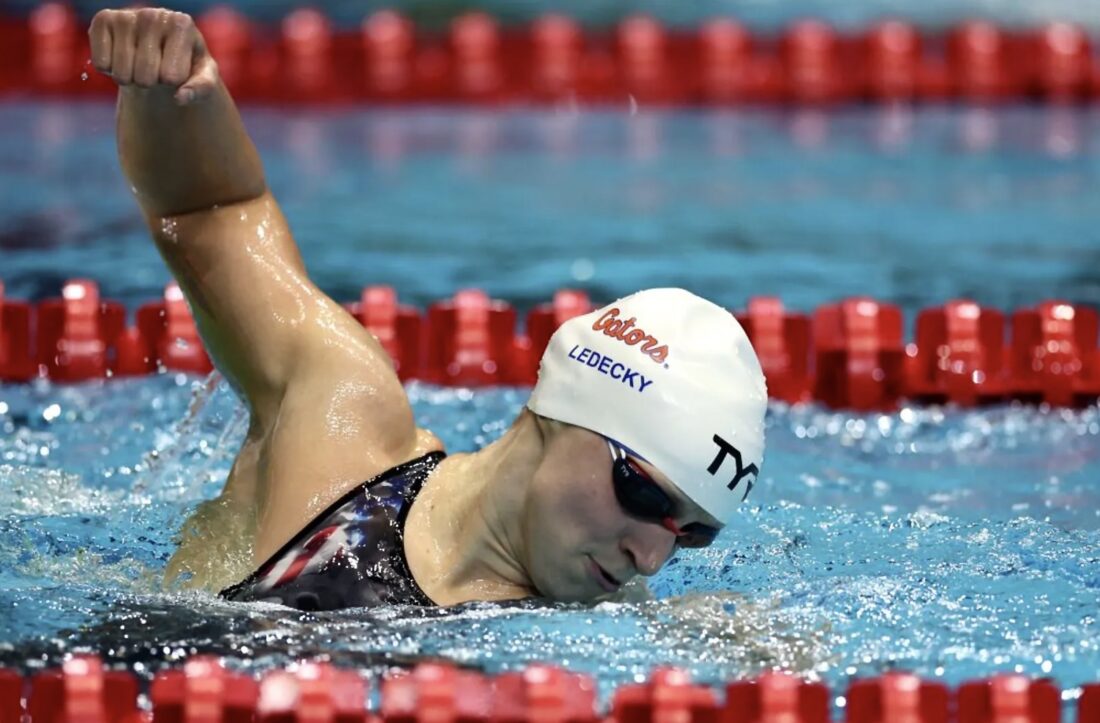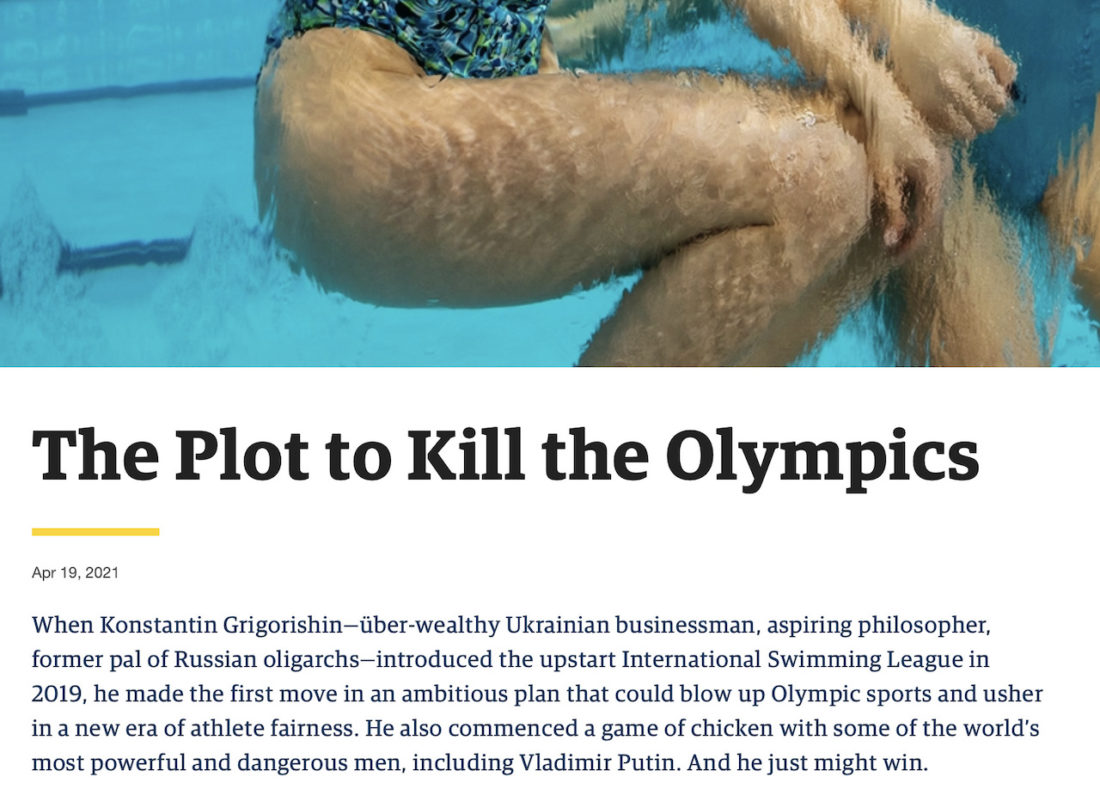
Katie Ledecky has made short-course swimming a rarity during her illustrious career. With each passing 25m World record set in women’s distance freestyle, her absence always felt more ‘when’ than ‘if. When was sent into the pantheon in 7mins 57.42sec at the final round of the FINA World Cup at home in the United States last night.
Having felled the 1500m World record in Toronto, Canada, earlier in the Cup series, Ledecky shaved almost two seconds off the 800m standard that had stood to Spanish pioneer Mireia Belmonte at 7:59.34 since the 2013 Cup in Berlin.
One of the most versatile women swimmers in history, Belmonte became the first Spanish woman to claim Olympic gold in the pool with her 200m butterfly victory at the Rio 2016 Games.
Ledecky emerged from her record swim to tell FINA reporter Andy Ross: “I was putting some pressure on myself after my swim in Toronto. I wish I had done it in Toronto (where she clocked just over 8mins). It’s always nice when you can hear a little bit of the crowd. It’s a fun way to start the fall and kick off the season. We usually don’t get the season started with an international level meet so it’s a little different for me.”
Ledecky is the third woman to race inside 8 minutes after Belmonte’s 2013 effort and the 7:59.44 clocked by China’s Wang Jianjiahe at a home round of the Cup in 2018.
- Results in Full at Omega
- Related: Katie Ledecky & A Legend’s Perspective In The Space Between Loss, Loss, Gain, Retain
Editorial:
Time For Leaders To Match Ledecky Excellence
The 2022 Cup season has been better attended by some of the world’s best swimmers than has been the case for many a long year but absenteeism, even at a time when the International Swimming League is on hold and despite the prize money on offer, continues to mean that the short-course FINA series is an event largely ignored in mainstream media around the world, in paper and digital forms.
Moments like Ledecky’s World records produce a blip of publicity but the Cup is on the list of questions that FINA is facing in the process of reforming the way it does business.
The international federation is still locked in a legal dispute with the billionaire who showed swimmers the power they have in changing the game and adopting a professional approach to their job in sport: League founder and funder Konstantin Grigorishin is busy with other matters these days, the Ukraine Energy sector he has played a big role in having suffered the demolition of 40 per cent of facilities under attack from Russian Vladimir Putin’s illegal war machine.

The rebuild will begin big time come the hour and all the bad history will be back in focus, including the situation and the details that emerged from court depositions in the USA: it’s a lot of unfinished business, on hold.
The new director of FINA, Brent Nowicki, has made a fine start to his tenure and task, the federation’s policy on transgender inclusion, part 1 in place, part 2, the details of what an Open category will look like, to be revealed after a Taskforce reports back to the executive next month.
Back in June at the time of the trans decision that made aquatics something of a pioneer for Fair Play in female sport – its policy one being considered by several other Olympic sports federations – Nowicki agreed that competition calendar chaos is a problem that swimming needs to sort out. It would not be until after the Paris 2024 Olympic Games that changes could start to be made.
The ultimate moments, Olympics and World Championships and related majors at continental and regional level, provided they are well spaced, are not the issue. The question is what swimming does in the space between the traditional showcases in order to create a shop window for the sport. The League and the Cup both have merit. They both have serious faults, too, and no Ledecky World record, thrilling as it is to see, will change that.
As things stand, the wider world, which is where there is potential for growth (if you keep speaking to the same audience, you get the same result), hasn’t a clue what a swimming season looks like. No wonder: it’s hard enough for fans, while media resolves the conundrum by showing up only ‘when it counts’, and that’s not the Cup, the League, the in-between.
How will FINA resolve it? It’s one of the biggest questions facing the international federation, alongside the need to rid the House of FINA (or whatever its new name may be when marketers and leaders have done working it out) of the dregs of old culture, a lack of transparency, independence and accountability among decision makers.
Why are those issues among the biggest facing FINA in its reform process? Because they continue to hold swimming and swimmers back from the place where they might be were not not for the failed governance of decades.
Roll on further change. Let leaders pin the flag of reform to the pioneering pace of Ledecky, not because they simply want to shine in her reflected glory but because they aspire to excellence and world-class achievement that has been in very short measure in the governance of aquatics and the structures that have been part of a self-serving malaise for far too long.